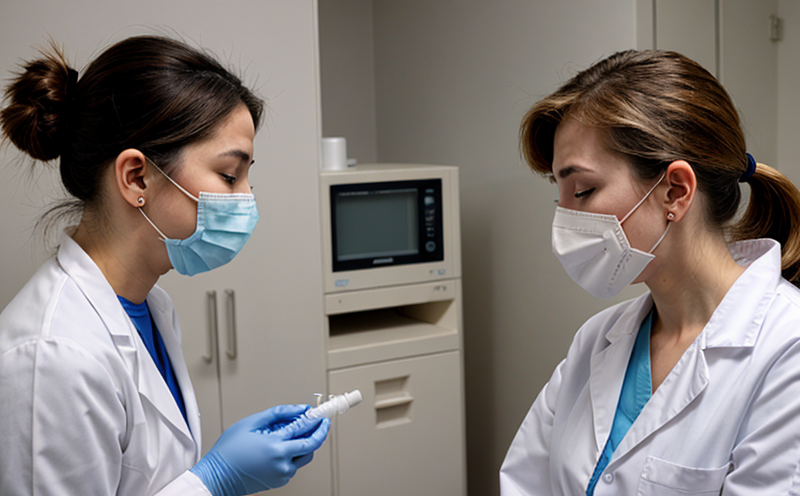Animal Allergy Testing in Companion Species
Animal allergy testing plays a critical role in diagnosing and managing allergic reactions in pets. For companion species such as dogs, cats, and other small animals, these tests help identify allergens that trigger adverse immune responses. This service is essential for veterinarians, pet owners, and quality managers to ensure the highest standard of care for their patients.
The process typically involves collecting a sample from the animal, which can be done through various methods such as blood draws or skin tests. The specimens are then analyzed using advanced laboratory techniques to identify specific allergens that may cause an allergic reaction. Common allergens include pollen, dust mites, mold spores, and certain food proteins.
The results of these tests provide valuable insights into the pet's environment and diet. This information can guide veterinarians in creating personalized treatment plans for managing allergies effectively. Treatment options may include environmental control measures like vacuuming frequently or using air purifiers, dietary changes such as hypoallergenic foods, and medication prescriptions.
Animal allergy testing is not only beneficial for pets but also has broader implications for public health and quality of life. By identifying allergens early on, we can prevent the development of more severe allergic conditions in both animals and humans who interact closely with them.
In addition to diagnostic purposes, this service supports research efforts aimed at understanding the mechanisms behind allergies better. This knowledge can lead to improved treatments and preventive strategies for not just pets but also people suffering from similar conditions.
It's important to note that while animal allergy testing focuses primarily on companion animals, the principles applied here are closely related to human allergy testing methodologies. Therefore, this service can serve as a model for developing more accurate and efficient diagnostic tools in clinical settings.
The accuracy of these tests is crucial given their potential impact on patient welfare. Laboratories performing such services adhere strictly to international standards like ISO 15189 for quality management systems in medical laboratories. These stringent guidelines ensure reliability and consistency across different testing facilities, contributing significantly to the overall standardization of allergy diagnosis worldwide.
Despite its importance, there are challenges associated with conducting accurate animal allergy tests. One significant challenge is ensuring consistent sample collection procedures among various practices, as improper handling could lead to inaccurate results. Another issue revolves around interpreting complex data from multiple sources accurately.
Industry Applications
In the veterinary field, animal allergy testing supports better patient care by helping veterinarians make informed decisions about treatment plans tailored specifically for each pet's needs. This service allows practitioners to identify specific allergens responsible for triggering allergic reactions in companion animals.
- Environmental control measures: By identifying particular allergens, veterinarians can advise owners on ways to reduce exposure within the home or outdoor environments where the animal spends most of its time.
- Dietary recommendations: Tailored dietary changes based on test results help alleviate symptoms associated with food allergies. Hypoallergenic diets are often recommended as part of a comprehensive management strategy.
Environmental and Sustainability Contributions
Animal allergy testing contributes positively to environmental sustainability efforts by promoting healthier living spaces for pets. By minimizing allergens in the environment, this service helps maintain cleaner indoor air quality, which benefits not only animals but also humans sharing these environments.
The use of hypoallergenic products recommended following animal allergy tests can contribute to reducing waste and pollution associated with conventional cleaning supplies used in households. Additionally, promoting awareness about proper waste disposal practices through educational materials provided by laboratories conducting these tests further enhances environmental responsibility.





